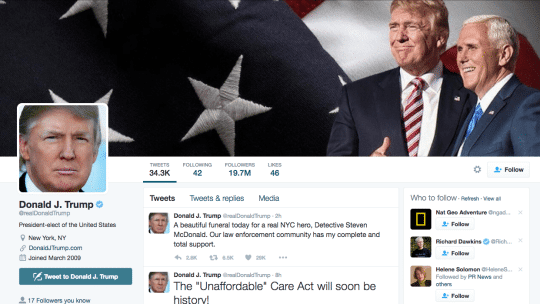
Donald Trump's tweet on Jan. 12, in response to the controversy over L. L. Bean board member Linda Bean's illegal donations to a PAC supporting him, added fuel to the fire:
Thank you to Linda Bean of L.L.Bean for your great support and courage. People will support you even more now. Buy L.L.Bean. @LBPerfectMaine
— Donald J. Trump (@realDonaldTrump) January 12, 2017
It's not unheard of for a U.S. president to give measured congratulations or support to a company, but many see a statement like "buy brand X" to be a radical departure from what is expected of a (soon to be) head of state. Since Trump is a controversial figure to say the least, it's difficult to tell exactly what the impact of such an endorsement on a brand's bottom line would be. Is increased enthusiasm from Trump supporters canceled out by antipathy from his critics, or does one side weigh more heavily than the other—and is the equation different for a New England brand like L. L. Bean and one anchored in Trump country?
Two things are more certain: 1) For good or for ill, a brand so highlighted will get a lot more attention, and 2) Trump doesn't seem likely to stop behaving this way. Therefore brands, especially large ones, may soon be devoting some time to specifically thinking about how to ingratiate themselves with the president-elect or how to stay as far from his attention as possible—if they aren't already.
Some other instances of Trump tweeting about a brand or organization:
Just got a call from my friend Bill Ford, Chairman of Ford, who advised me that he will be keeping the Lincoln plant in Kentucky - no Mexico
— Donald J. Trump (@realDonaldTrump) November 18, 2016
I worked hard with Bill Ford to keep the Lincoln plant in Kentucky. I owed it to the great State of Kentucky for their confidence in me!
— Donald J. Trump (@realDonaldTrump) November 18, 2016
Trump's tweets about Ford illustrate how he's able to simplify (or oversimplify) complex issues to his own benefit on Twitter. While there was never actually any likelihood of Ford shutting down its Louisville factory and moving operations to Mexico (its contract with the union workers ruled this out), the carmaker did cancel plans to move production of one auto model abroad, and Ford Motor Company CFO Bob Shanks said Trump's plans would "provide an environment where it makes economic sense to build back up manufacturing jobs here." The takeaway seems to be that a token gesture earns Trump's support, but he may characterize the brand somewhat negatively by claiming it wanted to do something negative that he then put a stop to.
General Motors is sending Mexican made model of Chevy Cruze to U.S. car dealers-tax free across border. Make in U.S.A.or pay big border tax!
— Donald J. Trump (@realDonaldTrump) January 3, 2017
Here's the other side of the Ford coin: A seemingly unprompted negative tweet that refers to 4,500 out of 190,000 Cruzes sold in the U.S. in 2015 having been built in Mexico. By this point it should be clear that the American auto industry is a main focus of Trump's, and it's a good bet that heads of auto brands are nervous about issues that aren't even in the news; if it involves manufacturing abroad, Trump may dig it up and tweet about it.
Boeing is building a brand new 747 Air Force One for future presidents, but costs are out of control, more than $4 billion. Cancel order!
— Donald J. Trump (@realDonaldTrump) December 6, 2016
Another tweet that took the stock market for a ride was directed at Boeing and its project to build two new Air Force One planes. This one carries a message for brands that take on government contracts: Be prepared for negotiations to be tougher and more public, and again, for more blame over disagreements to be shifted to you. Much of the expense involved in this deal is due to the government's own national security requirements, as well as equipment that Boeing itself does not manufacture; to cut costs here, "it is up to Boeing to jawbone their subcontractors," says John Pike of globalsecurity.org. A difficult position, to be sure.
Chuck Jones, who is President of United Steelworkers 1999, has done a terrible job representing workers. No wonder companies flee country!
— Donald J. Trump (@realDonaldTrump) December 8, 2016
This one is fallout from the Carrier deal; you may remember that the HVAC manufacturer reached an arrangement with the president-elect to keep about 800 jobs from moving from Indianapolis to Mexico in exchange for financial incentives. Trump, however, had promised to keep 1,400 during his campaign, and union president Chuck Jones appeared on CNN to call him out on falling short of his promise and inflating numbers; Trump hit back hard. Attempts to set the record straight and calling for accountability are not going to go over well with Trump as your adversary in negotiations, so brand beware.
Follow Ian on Twitter: @ianwright0101
